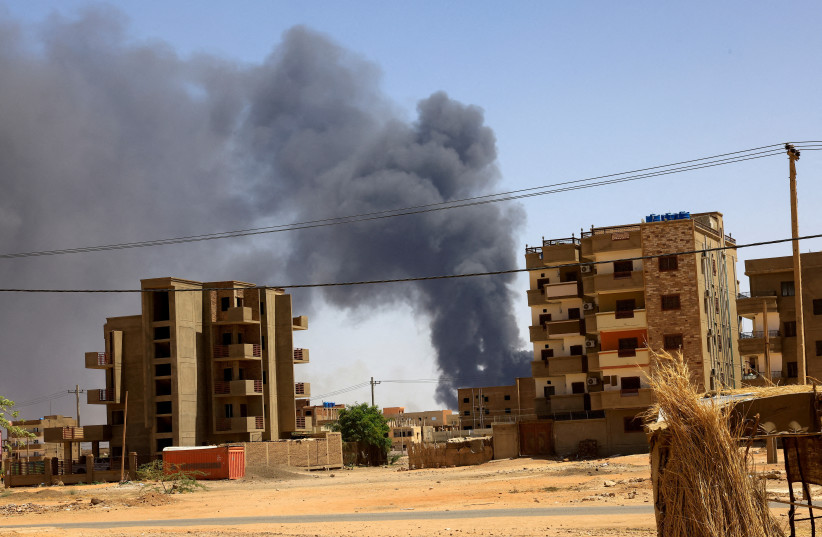Saudi Arabia and the US have helped broker a ceasefire in Sudan, according to reports Sunday.
The ceasefire will begin Monday and is supposed to last seven days.
The breakthrough is important because it shows how Saudi Arabia and the US can work together to bring peace to the region.
Sudan's military vs. the RSF: Civil war rages in the North African country
Sudan has been badly harmed by a civil war that began last month. This pits the country’s army against a paramilitary force called the Rapid Support Forces (RSF). The Arab League meeting on Friday said that it opposes foreign interference in the conflict. The Arab League urged dialogue and unity among the warring sides, reports said.
Already it is believed almost a million people have been displaced by fighting. Thousands have fled the country, and many foreign countries have evacuated their citizens.

Saudi Arabia and the US have worked closely on Sudan issues. This is important because it shows that despite some tensions with Washington, Riyadh has repositioned itself as an essential player in the region and a driving force in the region’s politics. Riyadh’s attempts to patch up a ceasefire in Sudan could also lead to success in Yemen, Libya and Syria.
Saudi Arabia recently hosted an important Arab League meeting with the Syrian regime leader Bashar Assad, who attended for the first time in more than a decade.
Sudan ceasefire will be difficult to maintain
Reports from the Gulf regarding the Sudan ceasefire agreement illustrate that much work needs to be done to make the ceasefire last. The text of the ceasefire is long and complex and has many sections. It refers to the terms of the agreement and its principles, as well as banned actions, and what the two sides may continue to do; as well as humanitarian principles.
“The two parties stressed that there is a need to strengthen the protection of civilians, noting that they are determined to promote full respect for human rights and compliance with their obligations under international humanitarian law, renewing their commitment to reach a short-term ceasefire to facilitate the passage of humanitarian aid,” the agreement says, according to a text of the agreement published by Al-Ain media in the UAE.
The agreement notes that “the [two sides] welcomed the support and generosity of international donors in providing and delivering humanitarian aid to the Sudanese people, in accordance with international best practices and international humanitarian law, in cooperation with us.”
The agreement goes on to note that “the two parties shall inform the civilian population of the short-term ceasefire through publications, radio and all possible means of communication, provided that the two parties provide accurate information regarding the short-term ceasefire to the media. During the period of the short-term cease-fire, the parties shall guarantee the freedom of movement of civilians throughout the country and protect them from violence, harassment, recruitment, or other abuses.”
In addition, the agreement prohibits “attacks and hostilities, including sniper attacks… Air attacks and the use of military aircraft, drones or any heavy weapons… Shooting at any civilian aircraft or humanitarian aid carrier…. Torture or other cruel, inhuman or degrading treatment, including sexual and discriminatory violence in all its forms.”
The ceasefire also bans the continued recruiting of more soldiers, as well as looting and other activities.
The ceasefire agreement text, according to Al-Ain media also notes that “the parties commit to ensuring continued free, urgent and unimpeded humanitarian access, including access to relevant facilities to repair infrastructure and basic civil services, and not to impede the flow of humanitarian assistance from within Sudan or across borders to the affected population.”
